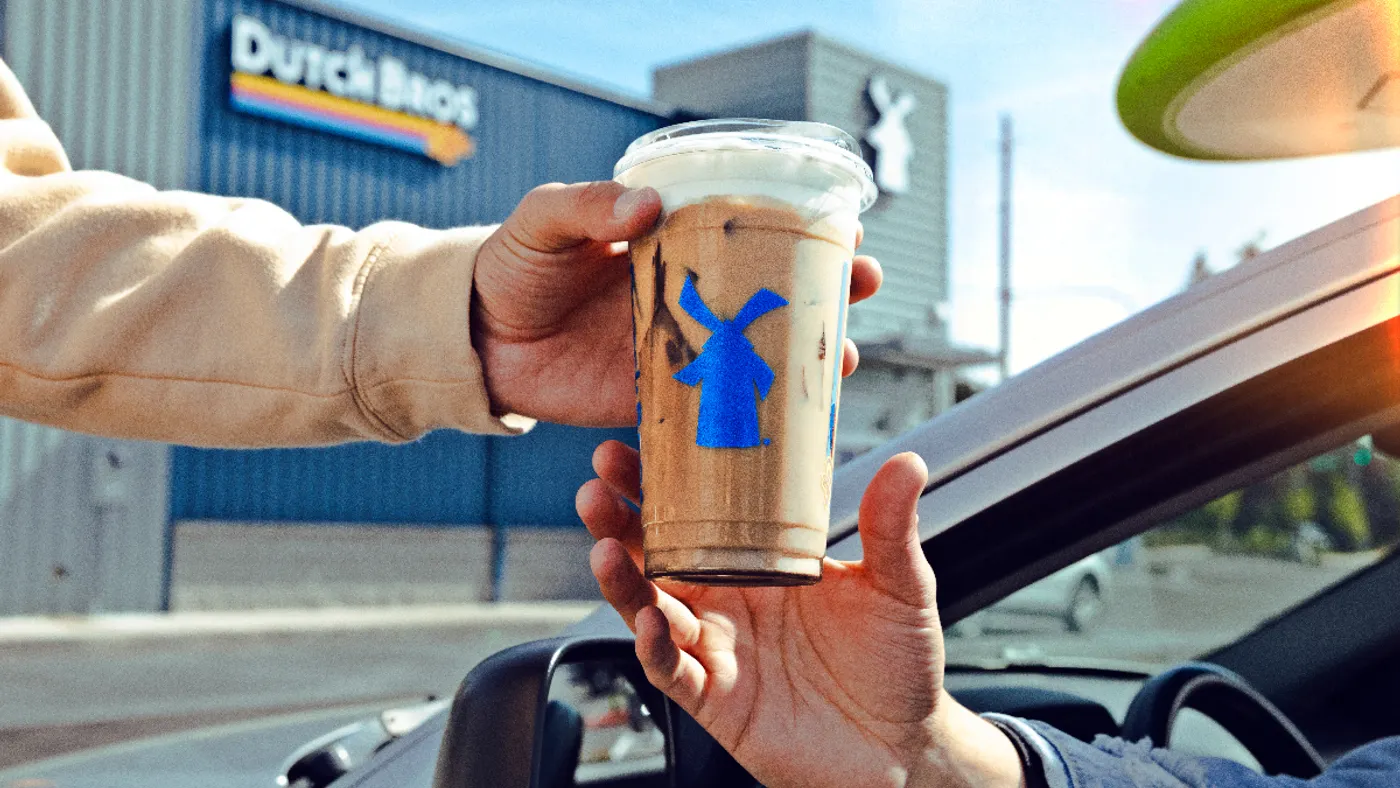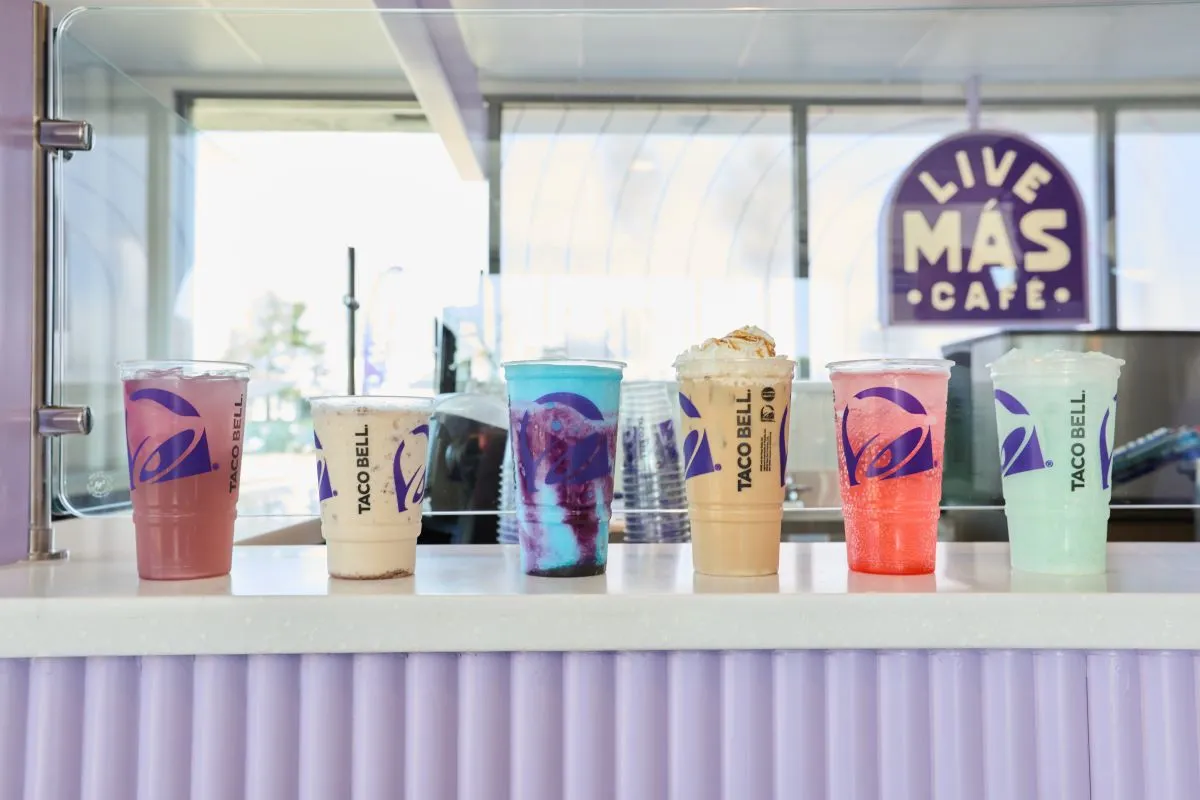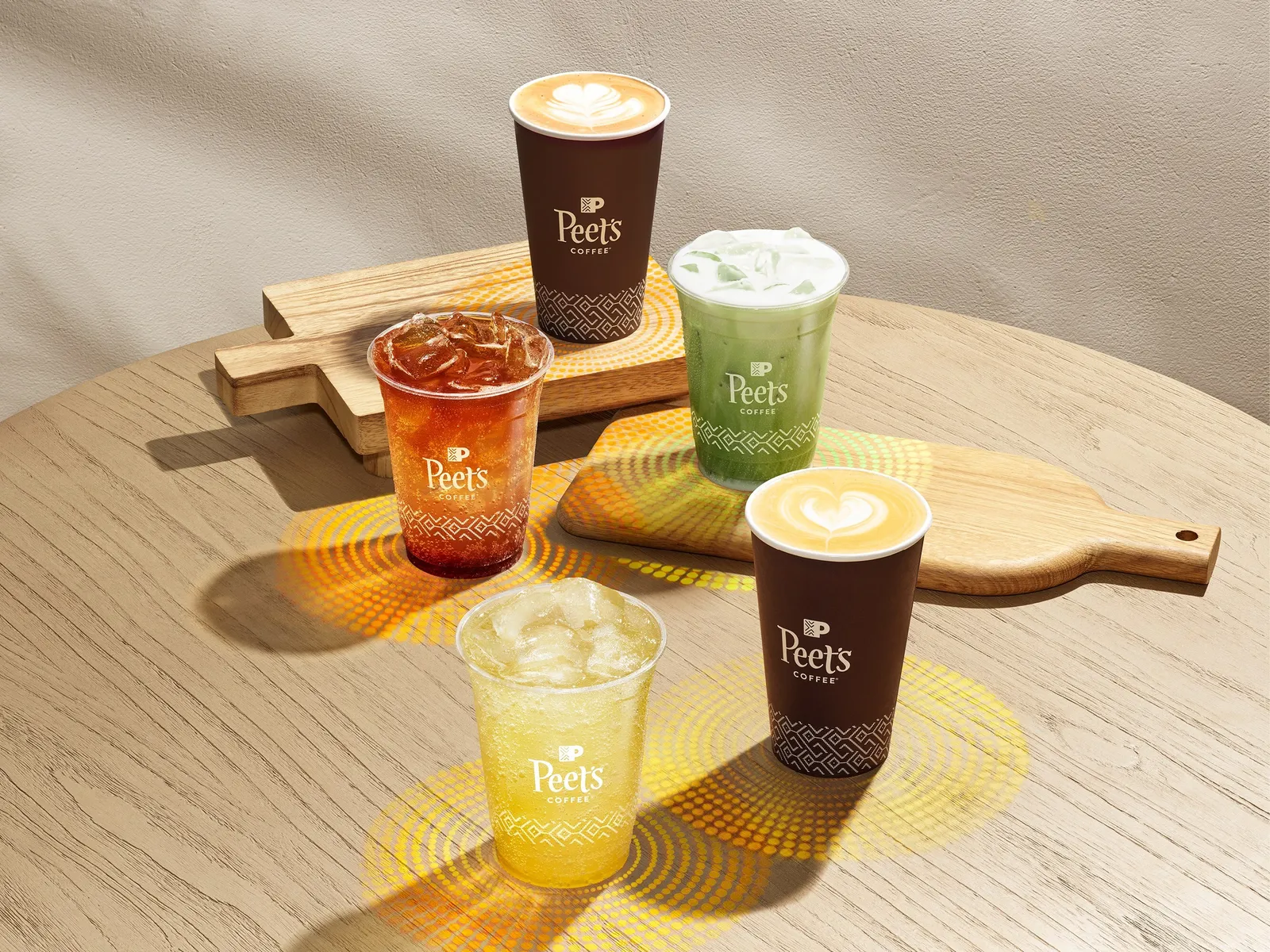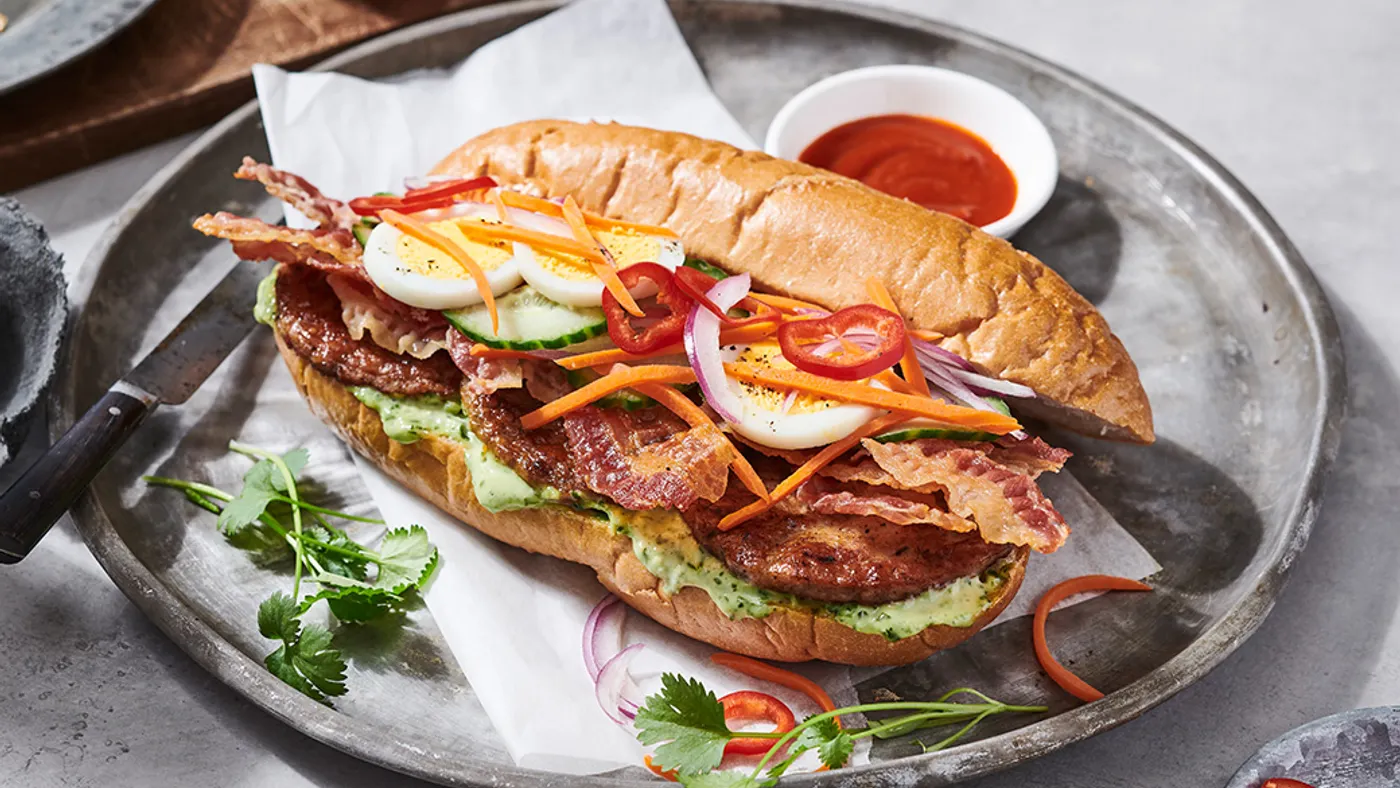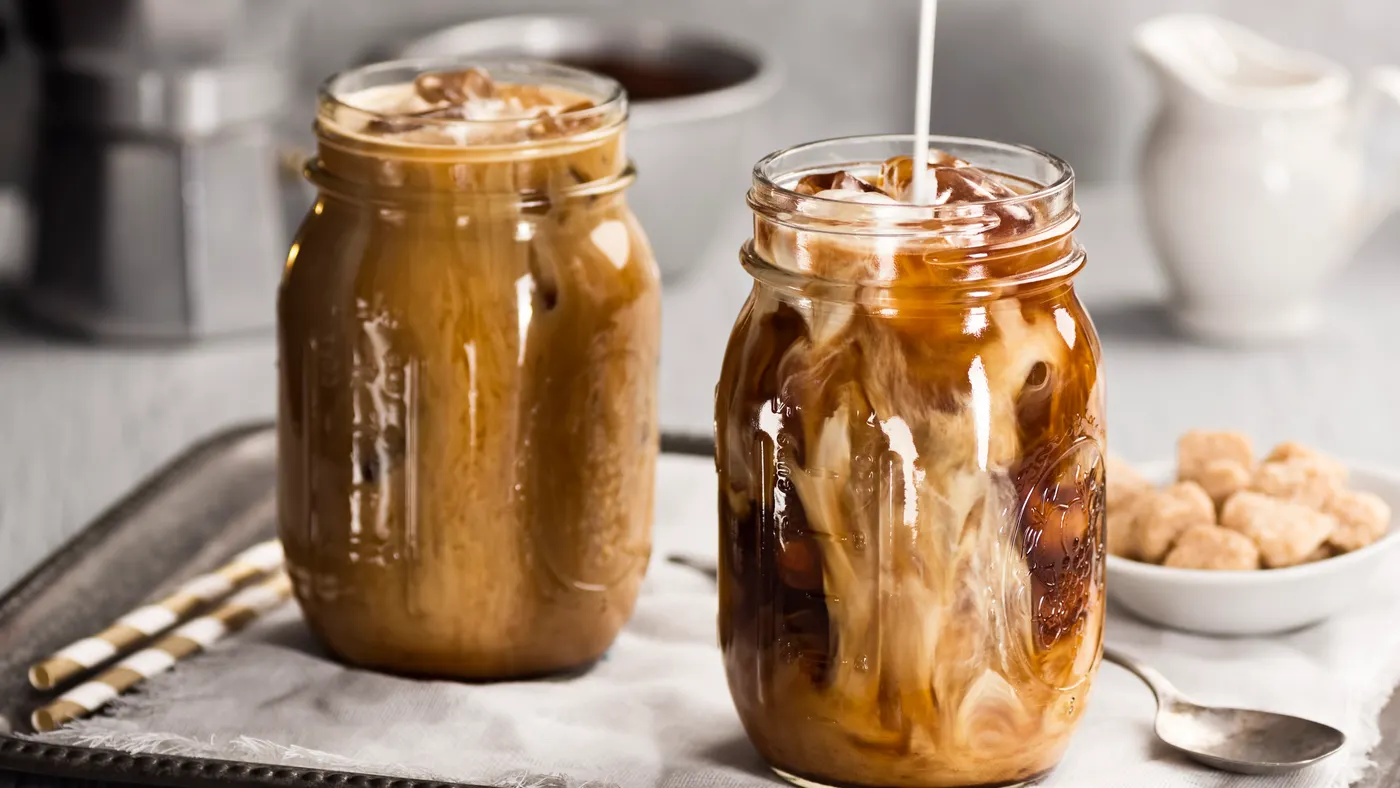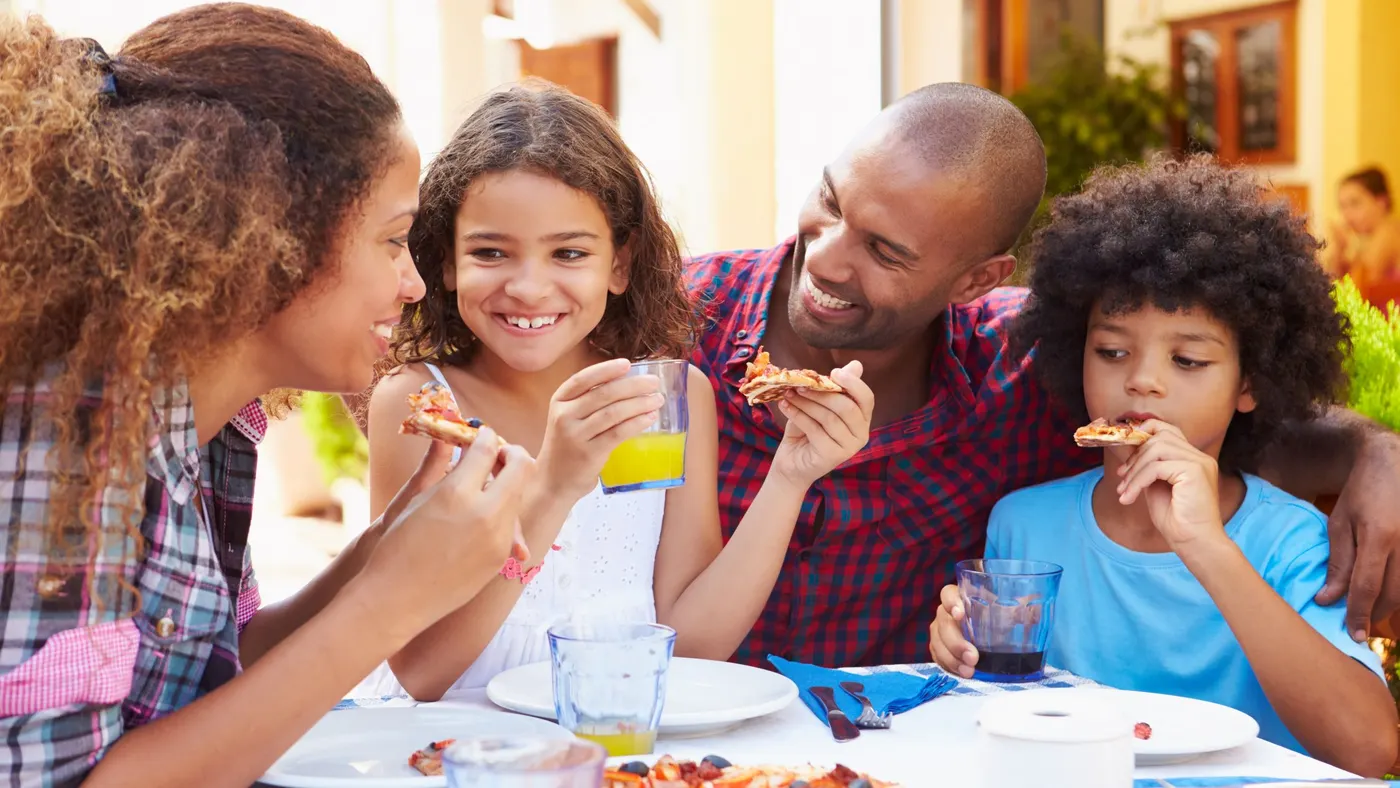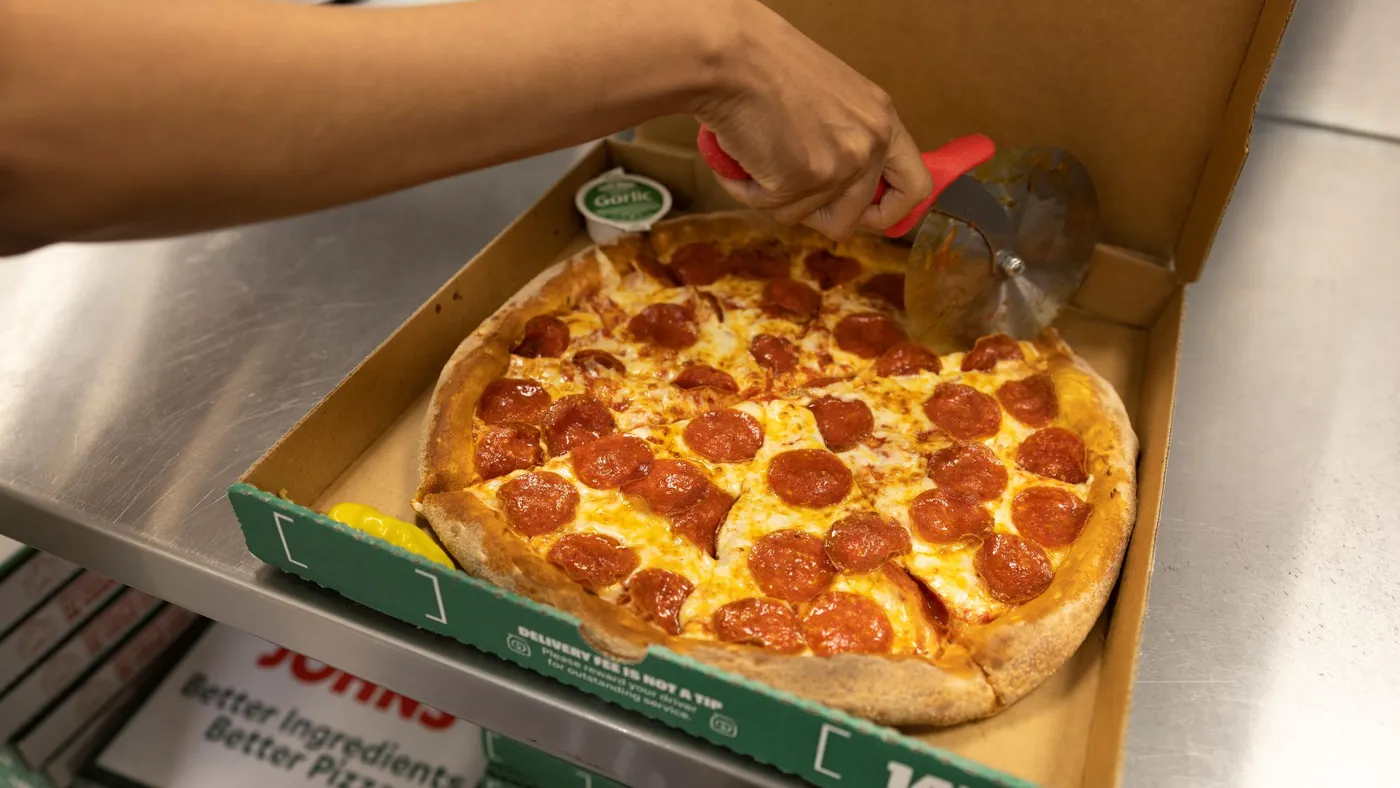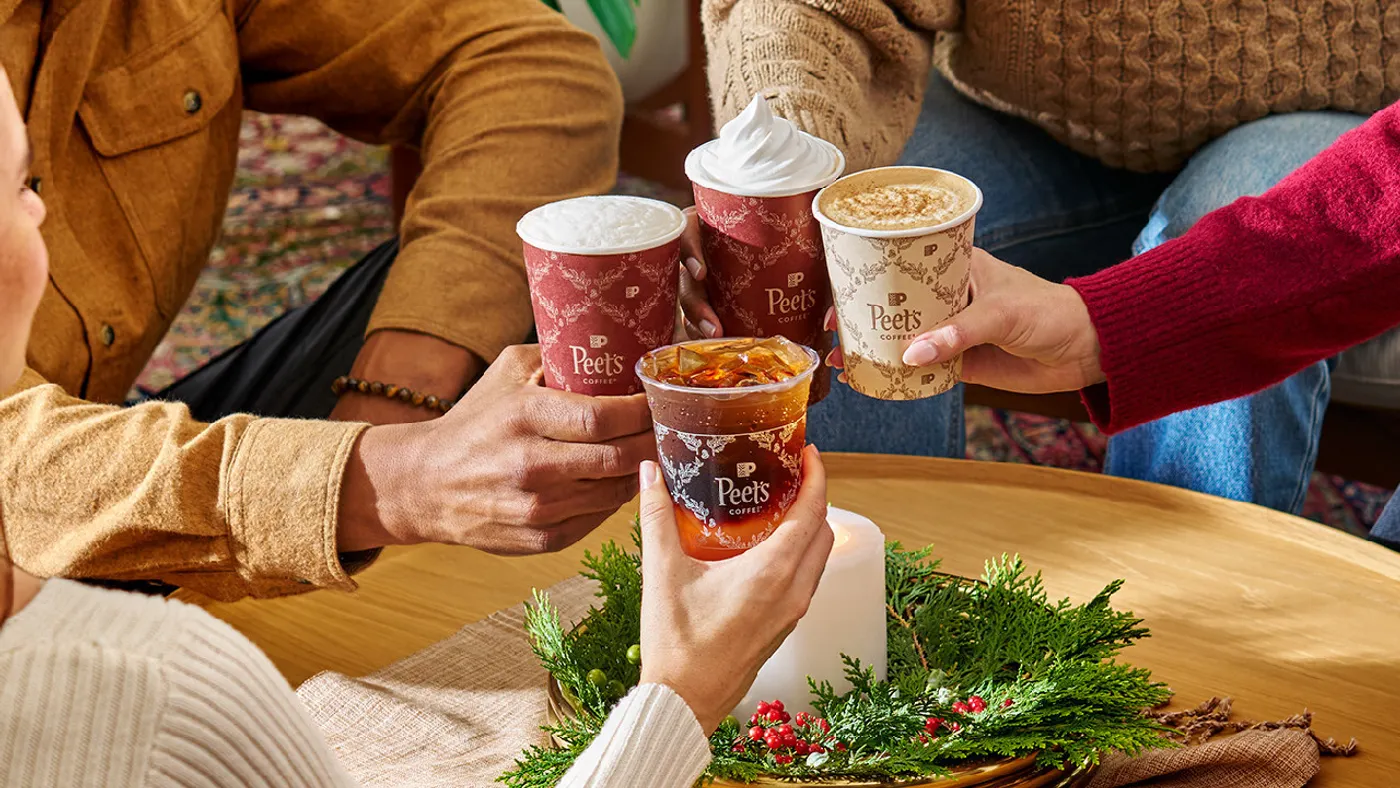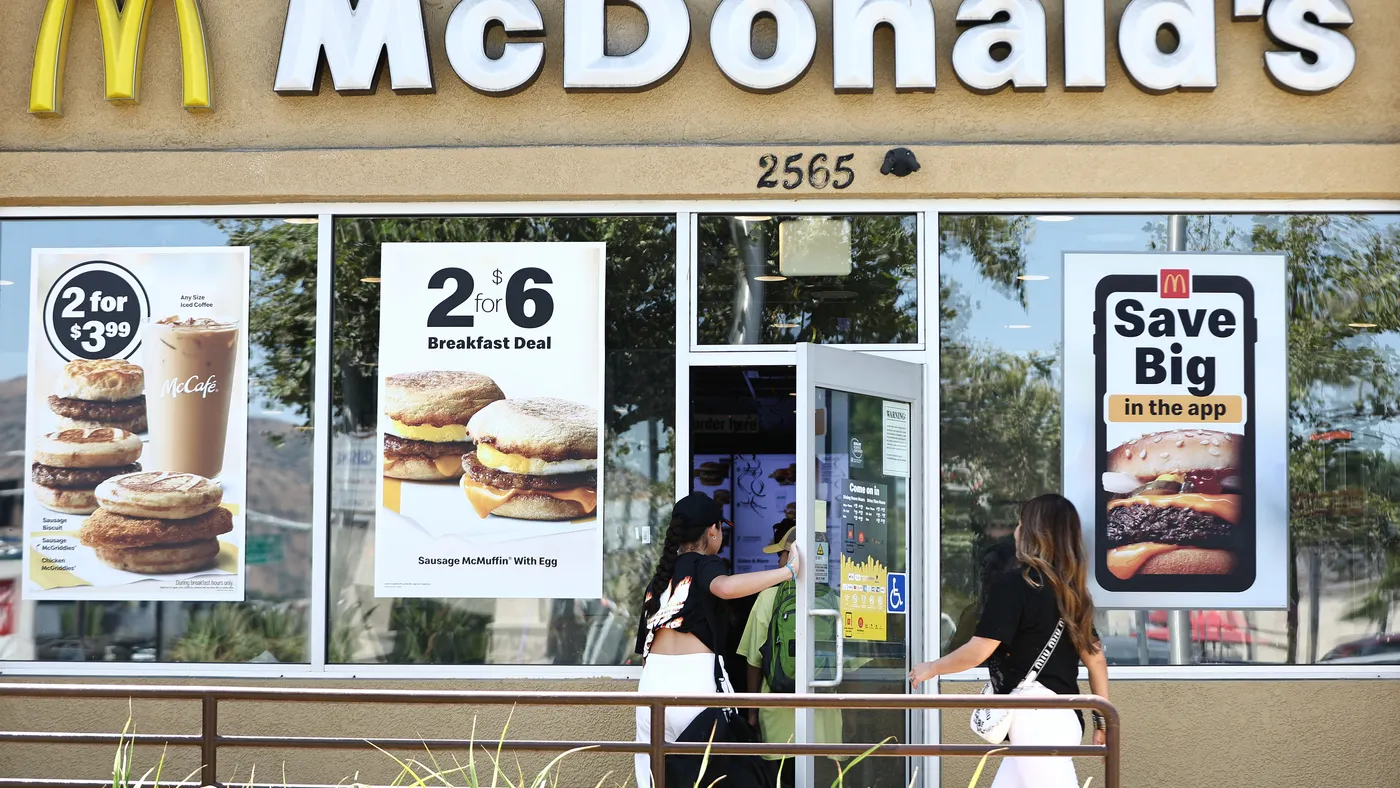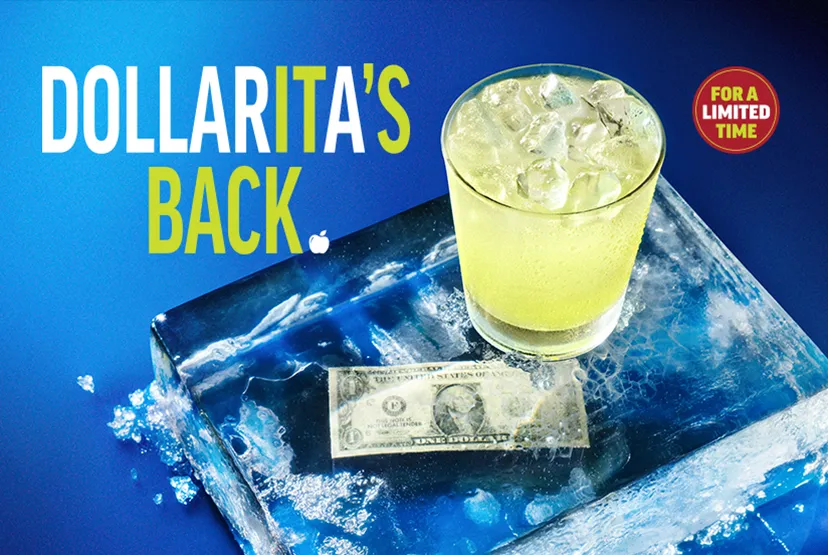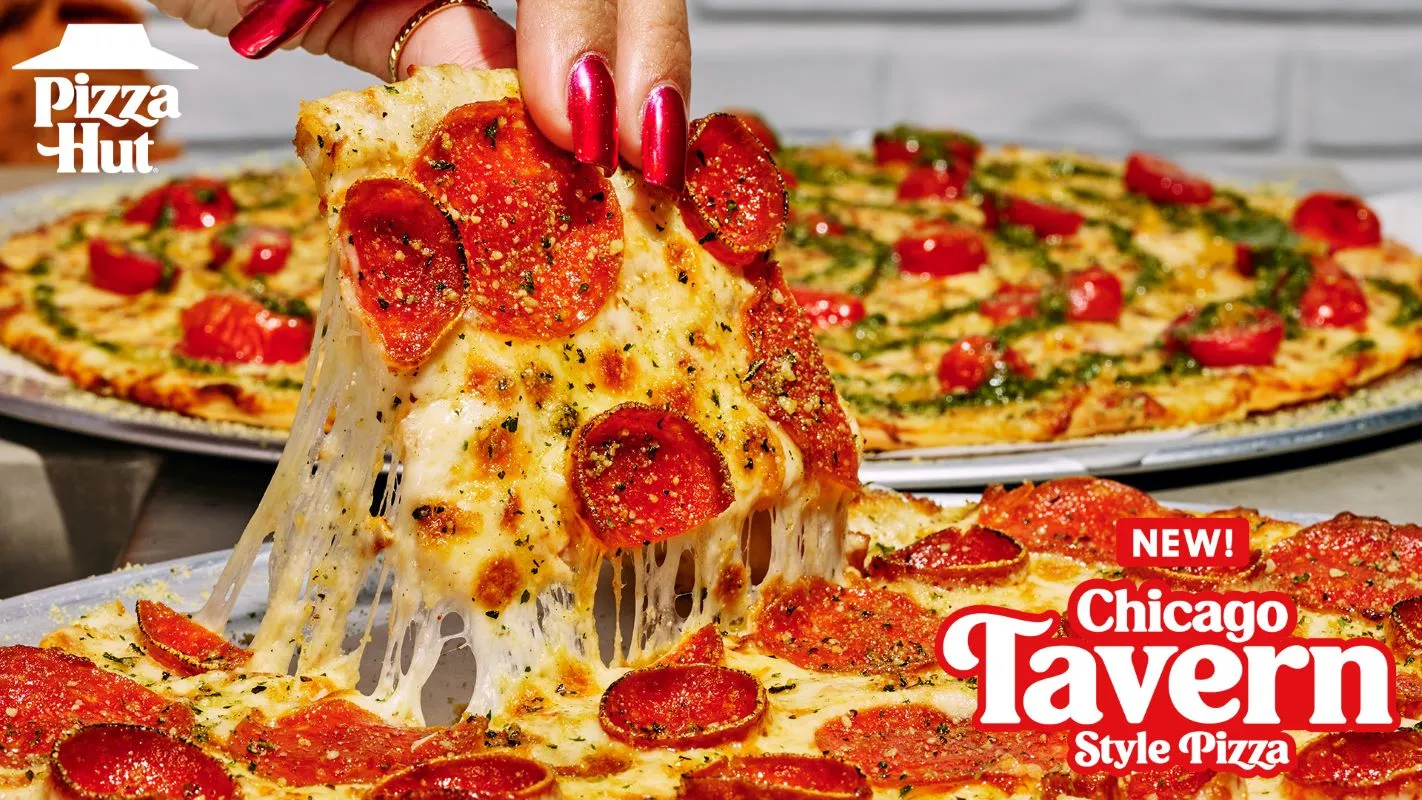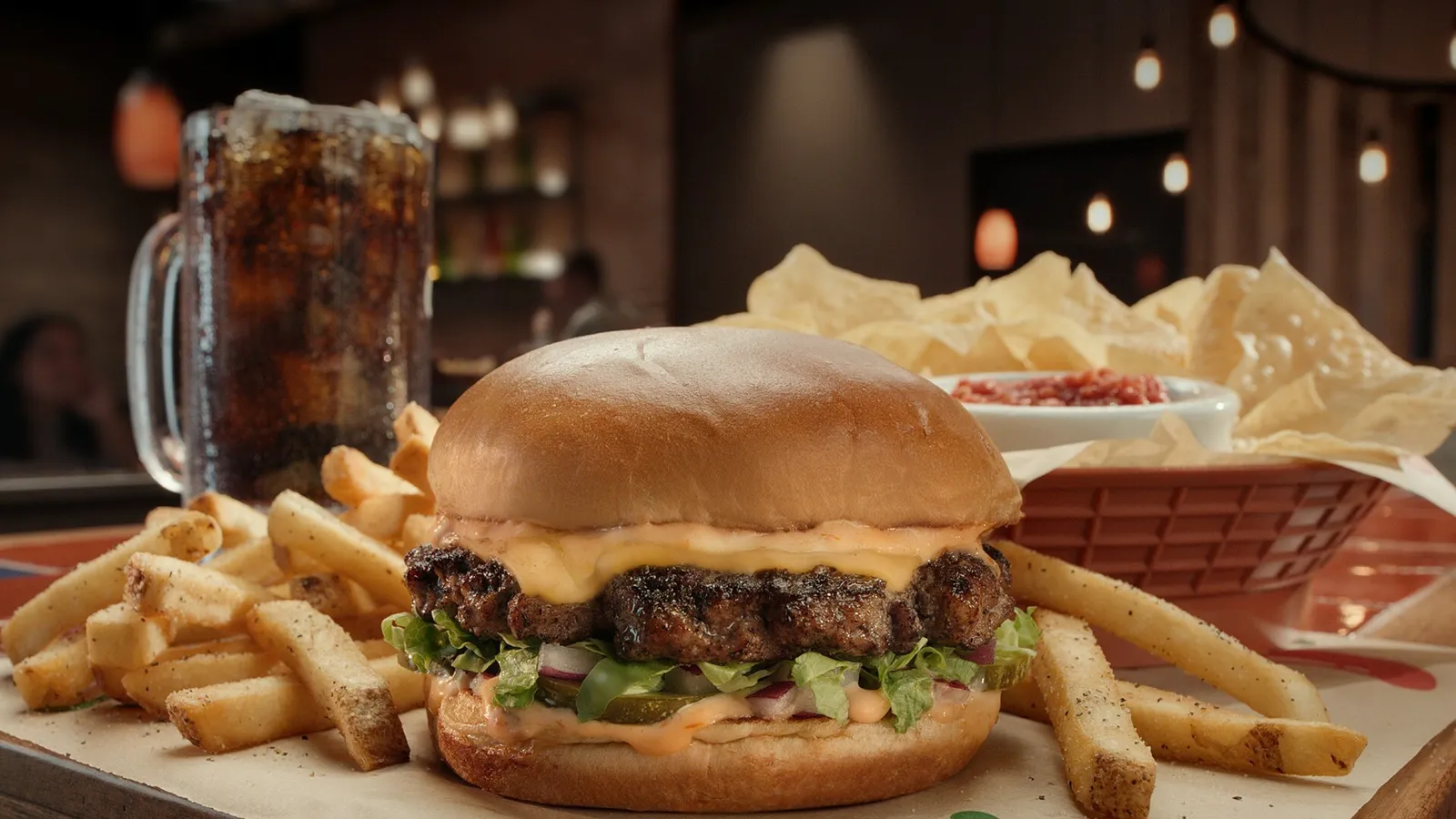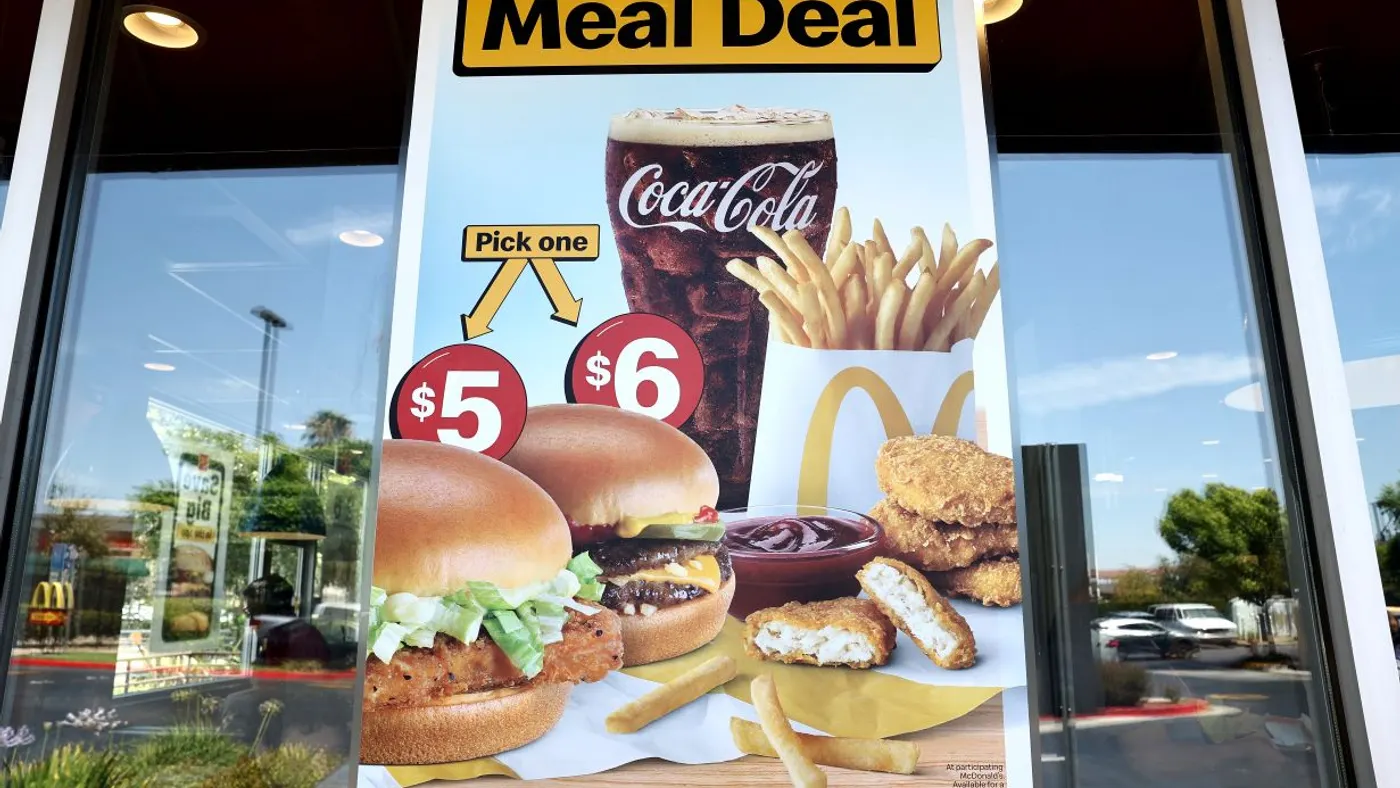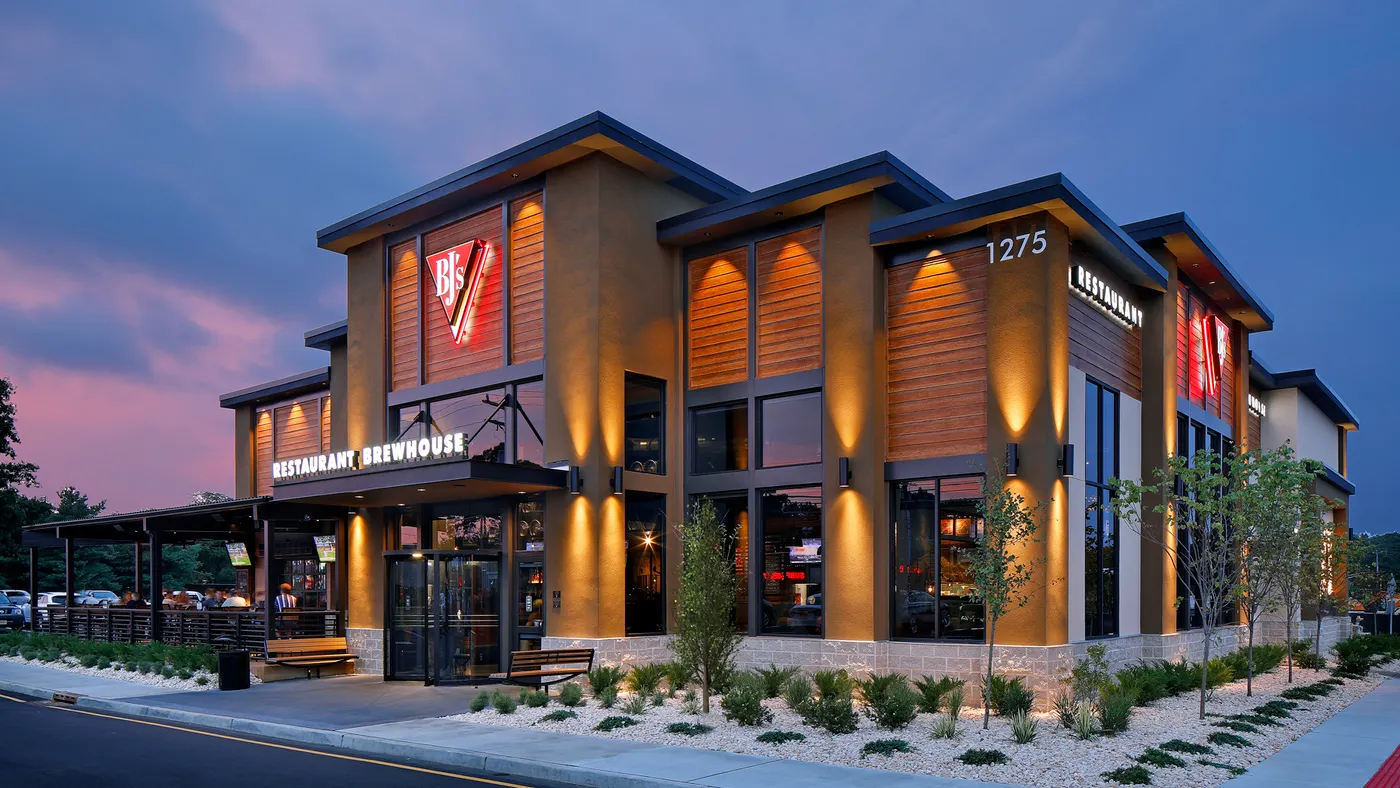
Why BJ’s CEO is betting on menu innovation to revive the brand
When Lyle Tick joined BJ’s Restaurants as president and chief concept officer in 2024, he was impressed by the quality of the chain’s locations — especially their spacious, welcoming dining rooms.
His impressions were reinforced by consumer research that showed the atmosphere of BJ’s restaurants is a competitive edge among its casual dining cohort.
“The spaces have a good energy,” Tick said. “The food quality is good. The service is, on balance, good. My experience, as I was coming in, made me feel like there were a lot of assets to work with.”
In his initial role with the company, Tick worked to refocus the brand and develop profit-driving initiatives. He came to BJ’s with a lot of experience revitalizing restaurant concepts, especially while he was at Buffalo Wild Wings. During about five years as brand president there, he updated the menu and restaurant design and launched Buffalo Wild Wings Go, an off-premise version of the chain. He brought many of these strategies to BJ’s.
“[BJ’s is] a brand that started with a really clear point of view with pizza at the core, the Pizookie and beer and bringing people together and community and connectivity,” Tick said. “I think over time, there’s been some fragmentation as they’ve gone after ease and the no-veto vote as the core benefit. While I think that is a very powerful thing, I think we have to have a stronger center of gravity than that as our core. I felt like the brand needed some clarity.”
The company has been investing in its atmosphere with remodels, net new restaurant openings, employee training and menu innovation, Tick said. Now that he’s in the CEO post, that strategy will continue.
One of the chain’s key strengths is its ability to attract a wide demographic, from families and kids sports teams to happy hour occasions and a girls’ night out, Tick said. BJ’s overindexes with younger, high-income households, which typically prefer to eat at the chain during the dinner and late night dayparts.
While the chain has found a place in social splurging, there is also a strong preference for the everyday treat occasion, like families going out to dinner every Friday night, for example. This is a great sign for the chain, Tick said.
“Those kinds of occasions people put a lot of value in, are where we do really well, and those [occasions] are pretty resilient,” Tick said.
BJ’s is working to ensure that the experience feels worth it to BJ’s customers, starting with updates to its menu.
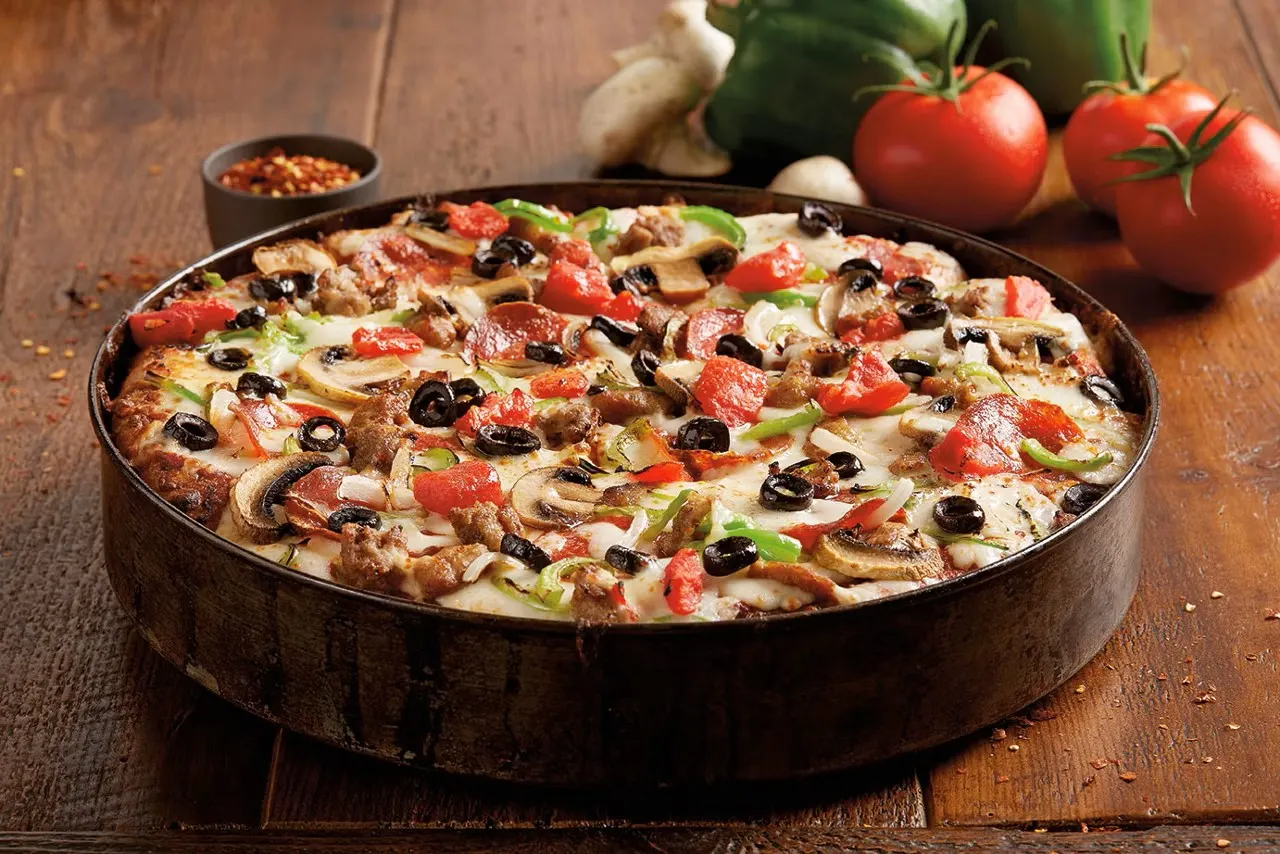
Making better-tasting pizza
BJ’s is in the process of updating its pizza platform. It is a big traffic driver for the brand, but customer satisfaction has eroded over the years. The company has re-engineered its pizza dough to turn that around.
“We’re going back to kind of reinventing that dough to make sure we can deliver dough that’s really crispy on the bottom every time and light on the inside,” Tick said.
The chain took some inspiration from square Detroit-style pizza, but is still serving its pizza round, he added.
BJ’s new pizza sauce uses fresh packed tomatoes with extra virginia olive oil. It will use 100% whole-milk mozzarella and pepperonis that bake into a small cup shape, he said. The chain also roasts and hand crumbles its Italian sausage.
The restaurant brand plans to cut down the amount of prefabricated pizzas it makes, he said, adding that this strategy will allow the chain to add new pizzas through an LTO program going forward. Guests will still be able to build their own pizzas, he said.
BJ’s already completed an operations test and a blind taste test with a focus group to see if the new pizzas were better than the old, Tick said.
“We’re in the middle of a market test, which is showing very encouraging results,” Tick said, adding that BJ’s could start rolling the updated pizzas in more restaurants in the fall and into 2026.
He said the ultimate goal is to not just enhance its strongest categories with better products, but also to simplify processes around these items to yield better execution.
BJ’s will rework its core pizza menu initially, before looking at other areas of the menu, like the emerging category of sharable appetizers and entrees that can bring people together, Tick said. The chain could also do more with its slow roast and steak platform, which it has evolved in the past few years, he said.
“We’re spending a lot of time thinking about how we are going to be the best in those areas, and then simplify things to make it easier for our team members to deliver the service we want and execute with excellence every time,” Tick said.
Improving the guest and team experiences could create a virtuous circle of happy guests who want to return and happy team members who run more efficient restaurants, he said.
BJ’s will either maintain or renovate core pillars of its menu, and low selling items will either be simplified, removed or updated with some kind of contemporary element, Tick said.
“We’ll get to a menu that's more efficient and more consistently executable,” Tick said.
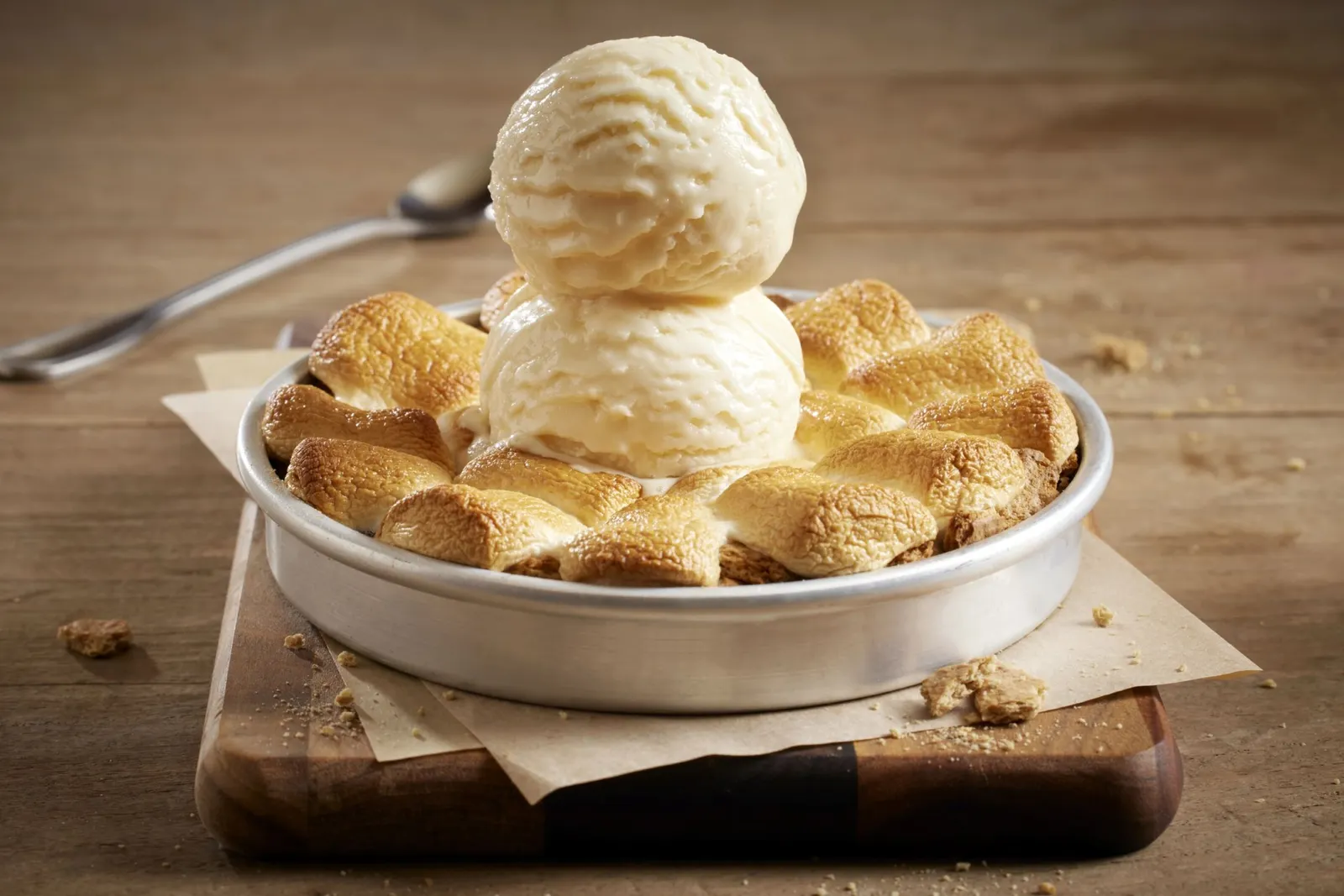
BJ’s Pizookie Meal Deal is one area where the chain is building sales momentum while also bolstering its value proposition. For $13, patrons can choose one of eight entrees, a selection of sizes and eight Pizookie flavors. The meal deal takes the Pizookie, BJ’s bestselling item outside of California and second bestselling item in California, to create an everyday value platform.
BJ’s employees are also skilled at promoting menu items like its Pizookie Plater, Snickers Pizookie or Frickles appetizer, which has helped drive traffic and keep the restaurant top of mind.
Traffic isn’t just growing on weekdays, when it offers the Pizookie Meal Deal, but all week long, Tick said.
“People are choosing us more often, and we know we have an awareness and consideration gap to the big guys that we can continue to build off of,” Tick said.
Improving employee training
To boost retention, BJ’s is improving training, starting first with hourly employees. It will launch updated management training in the fall so these managers can more efficiently learn about operations and deliver better hospitality.
Hourly employee training became less hands-on after the onset of the COVID-19 pandemic, as new staff were mainly using online modules to learn their jobs. That dynamic didn’t “set our team members up for success as quickly as we could or as effectively as we could,” Tick said.
Remote training led to high turnover in the first 60 to 90 days because “we were throwing people into the deep end and weren’t necessarily having them as prepared for success as we needed to,” he said.
The new training now balances digital training modules and shoulder-to-shoulder instruction. On day one, staff members receive a buddy who helps get them on the floor or on the line in the kitchen faster, he said.
“They feel supported and trained before they’re on their own,” Tick said, adding that feedback has been good with new hires, and 90-day retention has improved.
Leaning into technology
BJ’s is working on improving the employee experience through technology. The company initially corrected several “low-hanging fruit” problems with its point-of-sales and front-of-house systems to improve operations.
The POS system was updated to simplify customizations for its burgers. Roughly 40% of the modifiers for its burgers and sliders are two types of cheese, but servers previously had to navigate through several screens of modifiers to find the cheese, making it an onerous process.
BJ’s also simplified the fragmented technology solutions hosts used to monitor reservations, large parties and walk-ins into a single system that can improve the flow of people into the dining room.
The chain is currently looking into using AI for labor scheduling, Tick said. BJ’s has been testing the technology in some locations in Texas and California to make labor scheduling easier for general managers, with encouraging results.
“[The technology is] suggesting that we do have an opportunity to be more efficient from an hours usage point of view, but the real driver of it is getting the right people in the right place at the right time to drive better consumer satisfaction and better throughput,” Tick said.
The company will continue to test AI labor scheduling to ensure that it works properly before rolling out. Expanding forecasting to other areas could have implications for prep work, consumer ordering and other processes, he said. This could prove particularly helpful as the chain looks toward unit count growth in the future.
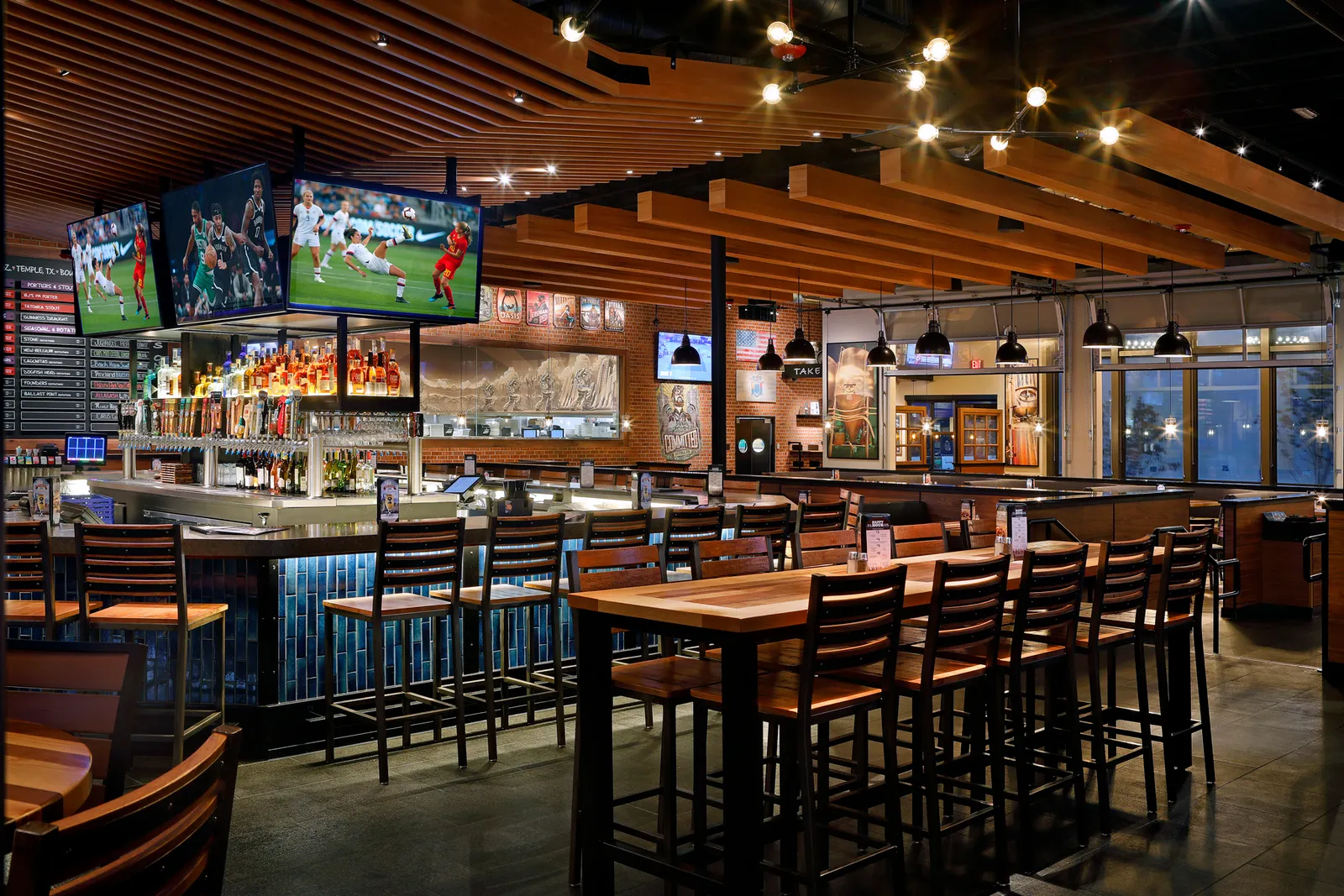
Creating a robust development plan
While development has largely slowed down in recent years — BJ’s opened one unit during Q1 2025 and three units in 2024 — new builds will be part of the chain’s future. Tick said the chain first focused on its remodel strategy to make sure that it can optimize its investment in what works and remove what doesn’t and now “feels really good about that with its existing footprint.”
BJ’s undertook a similar analysis for new builds to figure out where restaurants might work and where they might not, because new builds are a significant investment and take 18 months or longer to complete, he said. So the chain will likely regain momentum with new builds in the second half of 2026 and into 2027.
The handful of recent openings — Tracy, California; Cypress, Texas; and Queen Creek, Arizona — have shown strong results. And there is plenty of room for growth, as none of its markets are fully saturated.
“I think those [openings] are reinforcing our hypothesis about where to build new restaurants for BJ’s,” Tick said.
The development plan going forward focuses on filling in concentric circles where it already has restaurants and existing infrastructure, since that strategy is efficient from the perspective of supply chain, management and labor. Having employees nearby that know the brand and can help new restaurants get up and running is particularly beneficial, he said.
BJ’s has also engaged with a couple of external agencies to make sure that the physical plan it has reflects the chain’s branding and DNA. It also is taking into account the reality of construction costs, which keep rising.
“[We’re] taking an opportunity to take a fresh look across the board as we get prepared for that growth,” he said. “We’re at the beginning of the journey.”



